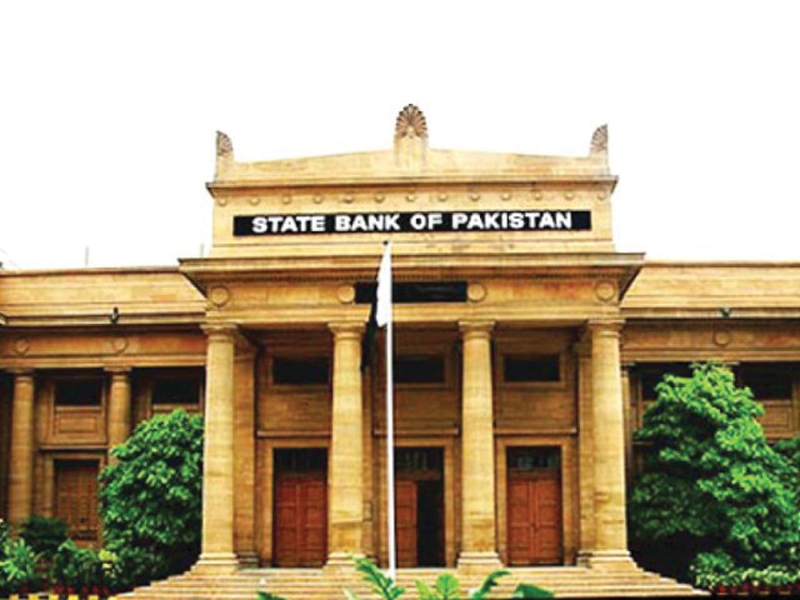
The central bank has determined a maximum limit of remuneration for a board/committee meeting of up to Rs800,000 for “those banks/DFIs which possess assets of more than Rs500 billion or have after-tax profit of more than Rs1 billion (as per last audited annual accounts)”, according to a notification issued by the SBP on Saturday.
All other banks/DFIs, which do not fall in the first category of having assets of Rs500 billion or after-tax profit of above Rs1 billion (as per last audited annual accounts), may remunerate a maximum of Rs500,000 for a board/committee meeting, it added.
Earlier, there was no maximum limit on remuneration. The central bank had asked banks/DFIs to pay reasonable remuneration to the chairman and directors so that they could play their due role in formulating a better business strategy for the banks/DFIs.
Economic growth to slip further in FY20: SBP
“The remuneration limits along with thresholds for assets size and profitability…will be reviewed by the SBP after every three years,” it said on Saturday.
Banks/DFIs may determine remuneration of their board members (including the chairman) taking into consideration their own governance structure and the level of responsibility and expertise of the directors concerned while remaining within the maximum limits as per their respective category and other instructions.
The SBP said the board’s remuneration committee would formulate a comprehensive and transparent remuneration policy for the chairman and other directors. “This policy should be made with a clear mandate and charter keeping in view the ownership structure, governance mechanism, risk profile, scope of operations, performance of the bank/DFI, etc and shall be approved by shareholders of the bank/DFI on pre or post facto basis in the annual general meeting.”
Remuneration would be fixed in Pakistani rupees invariably, nevertheless, payment of the same could be made to foreign directors in equivalent foreign currency(ies), where necessary, read the notification.
“The remuneration of a director for performing extra services, including the holding of the office of chairman, may additionally be determined with the approval of the shareholders, as the case may be, up to 20% of the remuneration set for him/her…, with proper justification in the remuneration policy,” the central bank said.
Traveling, boarding and lodging expenses of a director for attending board and/or its committee meeting(s) would be paid by the bank/DFI at actuals. In this regard, the remuneration policy should clearly specify the parameters for such expenses whereas any additional costs should be borne by the director concerned, the SBP said.
Banks/DFIs would also ensure that no additional payments or perquisites were paid “to the non-executive directors and chairman except as mentioned...,” it said.
No such remuneration should be paid to the executive directors except for usual TA/DA as per the bank/DFI’s standard rules and regulations.
Foreign exchange: SBP reserves rise 6.93% to $8.26b
The remuneration policy of a bank/DFI should also include the provisions to deal with the remuneration of underperforming director(s) based on their performance evaluation.
The remuneration policy should adequately envisage provisions for accountability of the directors for their conduct according to the scope of their responsibilities and scale of remuneration.
No consultancy or allied work should be awarded to a director or to the firm(s), institution(s) or company(ies) in which he individually and/or in concert with other directors of the same bank, holds substantial interest. Administrative expenses pertaining to the office, staff and security allocated to the chairman of the board should be determined rationally.
Proper and transparent disclosure of remuneration and other benefit/facility provided to the board members should be made in annual financial statements of the bank/DFI. The SBP advised all banks/DFIs to ensure compliance within six months. “Non-compliance shall attract punitive action under relevant provisions of the Banking Companies Ordinance, 1962,” the central bank said.
Published in The Express Tribune, August 18th, 2019.
Like Business on Facebook, follow @TribuneBiz on Twitter to stay informed and join in the conversation.

1725612926-0/Tribune-Pic-(8)1725612926-0-165x106.webp)















COMMENTS
Comments are moderated and generally will be posted if they are on-topic and not abusive.
For more information, please see our Comments FAQ